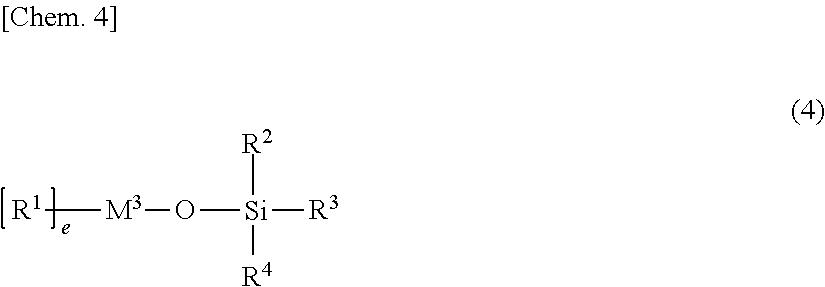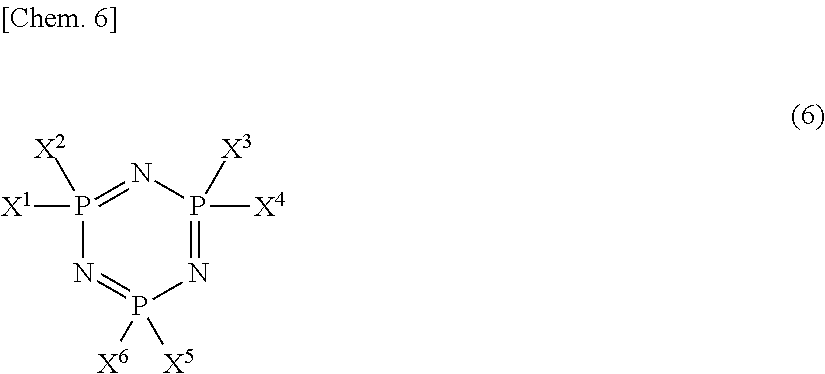Non-aqueous electrolyte solution and non-aqueous electrolyte secondary battery employing the same
a technology of non-aqueous electrolyte and secondary battery, which is applied in the direction of secondary cell servicing/maintenance, cell components, electrochemical generators, etc., can solve the problems of increasing the activity of the positive electrode, unable to obtain satisfactory characteristics, and difficulty in uniformly using active materials, etc., to inhibit capacity deterioration, excellent cycle characteristics, excellent charge/discharge characteristics
- Summary
- Abstract
- Description
- Claims
- Application Information
AI Technical Summary
Benefits of technology
Problems solved by technology
Method used
Image
Examples
examples
[0386]The present invention will be explained in more detail next based on examples and comparative examples. However, the present invention is not limited to these examples. The methods for evaluating the batteries obtained in the following examples and comparative examples are also described below.
examples 1-1 and 1-2
and Comparative Examples 1-1 to 1-4
Battery Evaluation
example 1-1
Production of the Non-Aqueous Electrolyte Solution
[0387]While operating under a dry argon atmosphere, 0.5 mass % adiponitrile and 0.5 mass % hexamethylene diisocyanate (also referred to below as HMI), as the contents in the non-aqueous electrolyte solution, were mixed into a mixture of monofluoroethylene carbonate (also referred to below as MFEC) and dimethyl carbonate (also referred to below as DMC) (30:70 volume ratio) and an electrolyte solution was then prepared by dissolving thoroughly dried LiPF6 therein so as to provide a concentration of 1.0 mole / L.
[Production of a Positive Electrode]
[0388]97 mass % lithium cobaltate (LiCoO2) as the positive electrode active material, 1.5 mass % of an acetylene black as an electroconductive material, and 1.5 mass % of a polyvinylidene fluoride (PVdF) as a binder were mixed and slurried in N-methylpyrrolidone solvent using a disperser. This was uniformly coated and dried on both sides of a 21 μm-thick aluminum foil followed by pressing to pro...
PUM
| Property | Measurement | Unit |
|---|---|---|
| mass | aaaaa | aaaaa |
| energy densities | aaaaa | aaaaa |
| dielectric constant | aaaaa | aaaaa |
Abstract
Description
Claims
Application Information
 Login to View More
Login to View More - R&D
- Intellectual Property
- Life Sciences
- Materials
- Tech Scout
- Unparalleled Data Quality
- Higher Quality Content
- 60% Fewer Hallucinations
Browse by: Latest US Patents, China's latest patents, Technical Efficacy Thesaurus, Application Domain, Technology Topic, Popular Technical Reports.
© 2025 PatSnap. All rights reserved.Legal|Privacy policy|Modern Slavery Act Transparency Statement|Sitemap|About US| Contact US: help@patsnap.com



